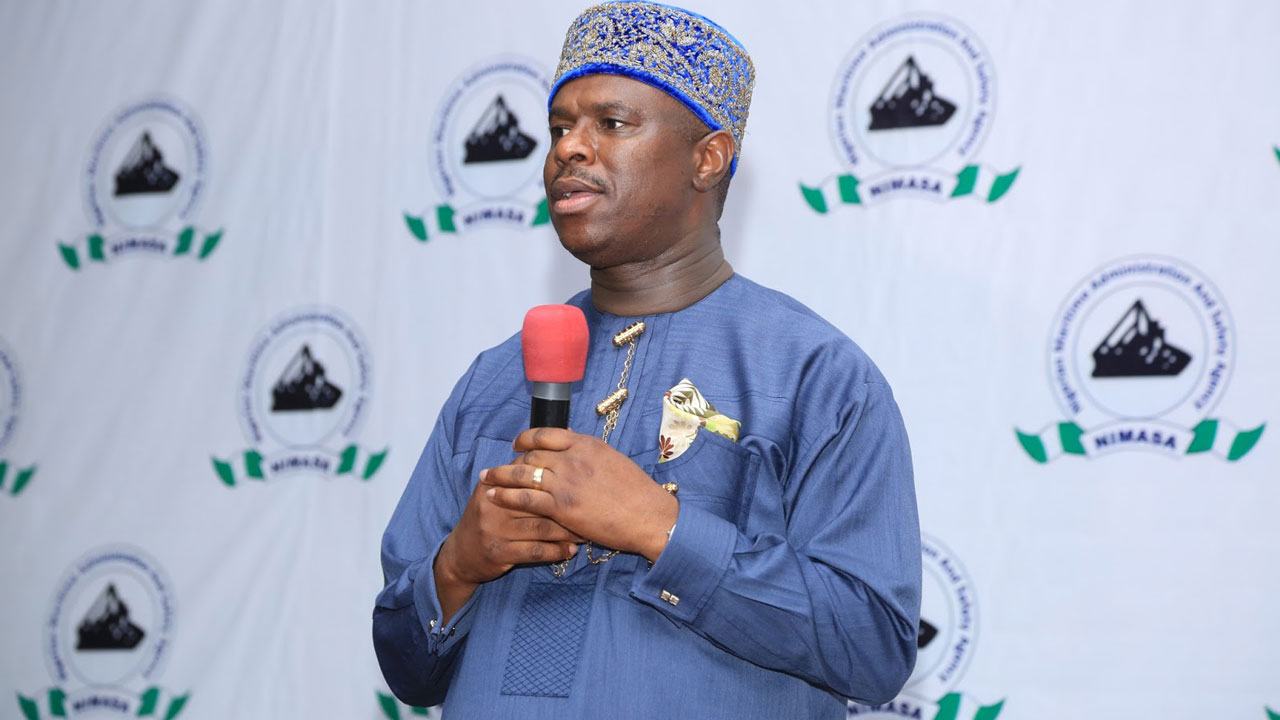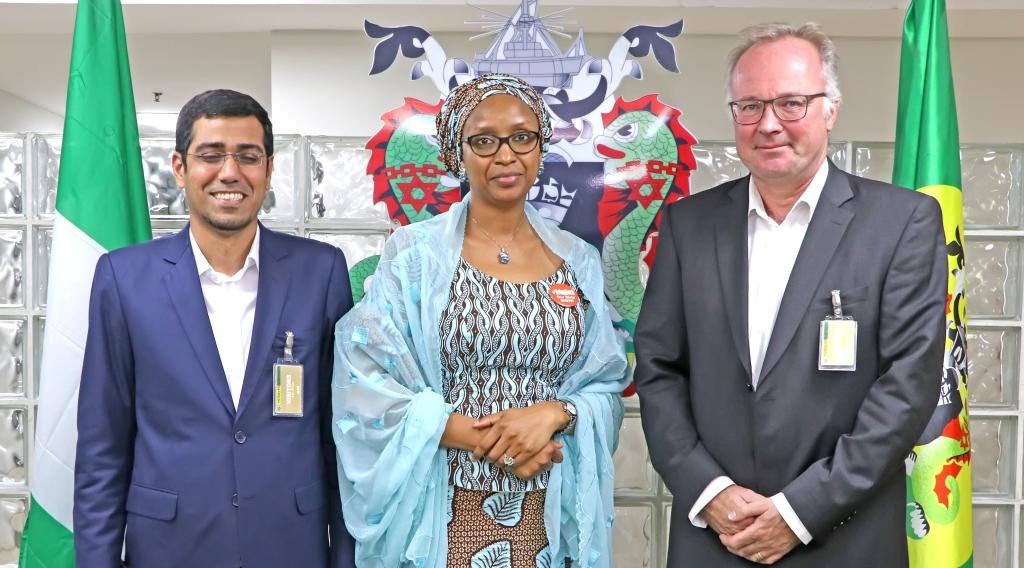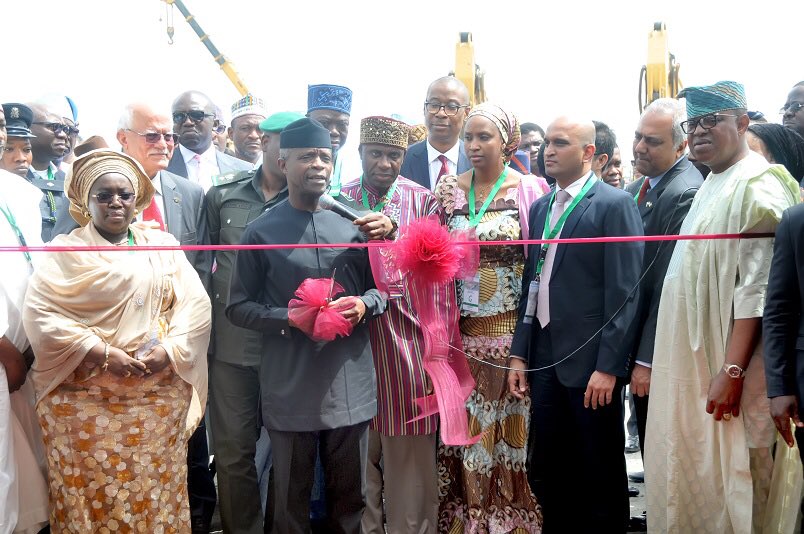More details have emerged on why Nigeria lost out in the recently conducted elections into the International Maritime Organization (IMO) category C Council seat.
The worst is that the lost came at a time Nigerian delegation of 36-man led by the Minister of Transportation, Rotimi Amaechi to the 2017 IMO General Assembly in London was adjudged as the largest ever in the election.
Besides, last week’s loss which came with its massive loss of government’s fund that would have been channeled to other meaningful activities was the third in a stretch of trials.
Nigeria, represented by the Nigerian Maritime Administration and Safety Agency (NIMASA) managed to secure only 93 votes to beat only Algeria another unfortunate African country with 90 votes.
Besides, Morocco led the table of five African countries including Egypt, South Africa, Kenya, and Liberia that made it to the category C seat.
Singapore led the table of the successful 20 countries in the category C council seat.
On why NIMASA lost, Business Hilights recalls the Secretary General of IMO had sounded it loud and clear to the Director General of NIMASA, Mr. Dakuku Peterside when NIMASA delegation visited to seek his support for the election few months ago.
IMO boss, Kim told Peterside to be more concerned to how to develop Nigerian maritime so that the Gulf of Guinea will return to maritime profitability than the rising piracy cases currently taking over the stretch.
Addressing participants at the opening of the 4th Regional Technical Search and Rescue Committee meeting in Lagos in October, the Secretary General of the IMO, Mr. Kitack Lim, represented by the Regional Coordinator, West and Central Africa-Anglophone, Technical Cooperation Division, IMO, Capt. Dallas Laryea made it clear that international trade is very critical to the world’s economy with estimation of 90% of world trade and two thirds of its energy supplies carried by sea.
Currently, local shipping activities have ebbed due to non implementation of cabotage regime more than 14 years after it was introduced.
Only in August this year, NIMASA released what it described as cabotage implementation procedure which several shipping experts have condemned, saying it lacked human face and unworkable under the prevailing maritime circumstance.
Lim therefore charged the Agency to continue to support the region and urged member states of the regional SAR to continue to collaborate to ensure a safe and secure West and Central African maritime domain.
Analysts say that the initial signal given to NIMASA delegation by Kim may have not been well interpreted by NIMASA and the Ministry before running campaign and even going to the election with the largest number of people.
According to top maritime stakeholders who reviewed the loss of the election, they say Nigeria lost the election based lack of meaningful track record on development of the maritime sector in the last two years of this administration.
Many of them expressed displeasure, saying the NIMASA leadership had only been interested in organizing or attending every conference be it international or local, both those that have relevance to the core function of NIMASA and those that has no bearing.
They also argued that the inability to begin the disbursement of Cabotage Vessel Financing Fund (CVFF), which by now, has risen to over $100m is enough to show that NIMASA mat not mean well for the industry it is created to develop and grow after all.
Only recently, the Nigerian Shippers Association called on the agency to work towards the disbursement of the facility so that Nigerian shippers can expand their coast by re-fleeting their platforms so as to become key players on the Gulf of Guinea shipping business which Nigeria is currently not a strong force.
The election bid, spearheaded by Transportation Minister Rotimi Amaechi and his protégé, Director-General of NIMASA, Dakuku Peterside, reportedly cost Nigeria more than N300 million. The scare resources were blown away on travels, hosting diplomats and associated jamboree.
Key issue was the analysis of a London-based Nigerian maritime analyst, Donald Adebola, who linked Nigeria’s loss to “inexperience and shoddy preparation” by the handlers of the country’s bid.
Adebola averred that “It is clear that both the Minister and Peterside are not knowledgeable about the workings of IMO and while that is not wrong in itself, their inability to mobilise knowledgeable people on board to drive the process is confounding.”
Forty countries were elected into the IMO Council in three categories for the 2017/2018 biennial.
The successful countries are China, Greece, Italy, Japan, Norway, Panama, Republic of Korea, Russian Federation, United Kingdom and United States in Category A.
Australia, Brazil, Canada, France, Germany, India, Netherlands, Spain, Sweden and United Arab Emirates were elected in Category B while Bahamas, Belgium, Chile, Cyprus, Denmark, Egypt, Indonesia, Jamaica, Kenya, Liberia, Malaysia, Malta, Mexico, Morocco, Peru, Philippines, Singapore, South Africa, Thailand and Turkey were elected in Category C.
Category A council members are countries with the largest interest in providing international shipping services, while Category B are countries with the largest interest in international seaborne trade:
Category C, which has 20 countries are those with special interests in maritime transport or navigation” and whose election to the Council will ensure the representation of all major geographic areas of the world,” according to IMO.
The Council, which is elected by the IMO Assembly for two-year terms beginning after each regular session of the Assembly, is the executive organ of IMO and is responsible, under the Assembly, for supervising the work of the Organization.









